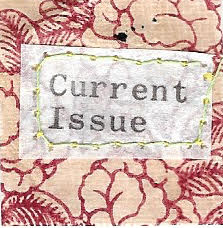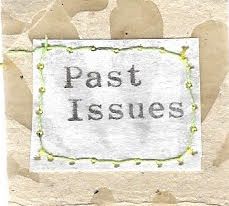Patricia Dicks
Unbound
To say they were twins meant nothing to Mercy. She and her sister were not alike. Even the way they looked belied the fact that they were related, much less delivered from a shared womb. For the first time in years, Mercy felt peace. She had the urge to run, to throw her head back in the sunlight and thank heaven for another day.
“Please forgive me,” she said, pointing to the photograph. “Did you know this girl?”
“No, but I hear she did a lot of good.” The woman behind the desk lingered on the image for a moment before turning back to Mercy, smiling. It would not have occurred to her that she was looking at the girl’s sister.
Faith and Mercy. Neither lived into her namesake. Faith wavered, fled, going astray to such an extent that it induced laughter when others learned her Christian name. Mercy, in response, privately adjudicated her sister’s failings with the knowledge that she alone understood the callings of her flesh.
The girls disliked each other from childhood and stood apart, each designing her own fortress of armor and suspicion.
“She’s an embarrassment,” Mercy said every time Faith failed a class or came home high. The toll it took on the family was enough to justify her resentment. Faith needed discipline, not the coddling her parents and teachers wasted on her.
Now Faith, counted herself lost. In a family of righteousness, she had an instinct for debauchery. The first door opened with the inclination to have fun. Everybody was doing it.
“I’ll just try it once,” she said, with the full knowledge that once would not be enough. She’d seen too many wasted corpses to mistake the fall that happens with a taste. But a quick laugh and a sly wink gave way to a rising desire to inhale the poison whole. With a breath, she crossed an ocean of sorrows that would only heal in death.
The second door was decadence, the need to receive intravenously what once satisfied from without. She took the step lightly, rationalizing, “I can stop any time I want to.” The sickening smell of the smoke caused her to ache and yearn simultaneously and made her dream of the first time she’d ventured into the abyss wanting to touch death. Each time she went under, a hole burned in her spirit and she felt the power of that death. It happened so fast, the descent from person to zombie, that those who watched were loath to believe she was the same person.
“People come back from this s*** all the time,” Faith muttered, kneeling in an alley, where she’d hidden herself with the drug, attempting to ration it. She trembled and watched as the sticky resin sizzled in the spoon. All she wanted was for people not to look at her as if she were an alien. Her old friends, neighbors, her mother. They didn’t understand that this was a sickness she couldn’t control.
Her sister Mercy blamed Faith for her own troubles. She listened as Faith’s story evolved from “I’m in control,” to “It’s a disease” and recoiled in disgust. As the gulf between the sisters widened, Mercy showed no mercy. She herself had been an athlete, running track and cheerleading. And though she gave no account to Faith’s influence on her life, the truth was, the further Faith fell, the harder Mercy focused on that which was wholesome. She designed a life of purity for spite.
“Why don’t you just pull yourself together and stop,” she said to Faith on one of the few occasions they spoke. Mercy’s practice was to pass her sister on the street and pretend not to see her.
In the fall, when Faith knew cold weather would soon force her indoors, where she would be compelled to trade the only thing she had to offer, Faith wrote to her sister.
“Please forgive me.” This phrase she liked to borrow from her sister for its genteel effect. “I’m sorry for all the problems I’ve caused. I think from the beginning, our paths were preordained. You, tall, athletic, with clear eyes and sound mind, always chose well. I, on the other hand, short, chubby, insecure, depressive, longed for everything wrong. I know I’m a disappointment, but I don’t know if I could make a different choice, were I given a second chance. I was just drawn to the stuff. I’m more trouble than I’m worth, but I would like to ask one thing of you. When you see me, could you say hello? I will say hello back and not go any further.”
Mercy considered the request. Could she accept that people are flawed, have weaknesses, falter? Months went by as she vacillated between accountability for the family money that had been spent on failed rehabilitations, and forgiveness, if only for her own peace of mind.
Fall turned to winter. Faith reached the end of a series of nets that had been catching her over the years. She went cold turkey, deciding to stay away from the old neighborhood until she was sure her sobriety took. By the time Mercy heard her sister was sober, it had been a year.
The accident took Faith away during a moment of solace.
Faith had registered for the DMV organ donation program before her death, guaranteeing her eyes, heart, kidneys and DNA would be used by the medical profession. The year had given her body time to detox and become serviceable for another’s use and seven people in the small town where she had been living benefitted directly from her donation.
Only now could Mercy think of Faith with a spirit of generosity. She remembered the time before heroin, before rebellion, when Faith held the promise of a bright future. Mercy thought of her own curiosity about drugs and admitted that Faith saved her. The journey they started together, fate unbound, allowing nature to sacrifice the one to save the other.





